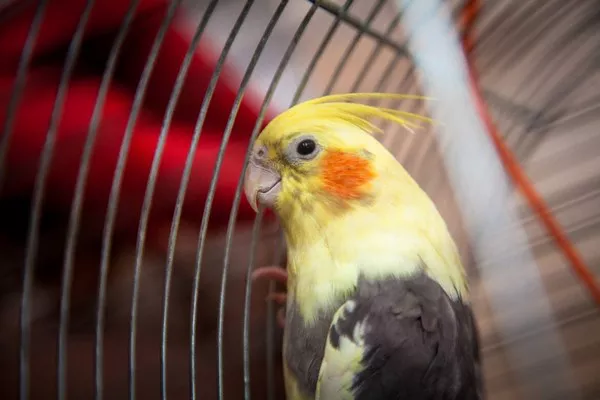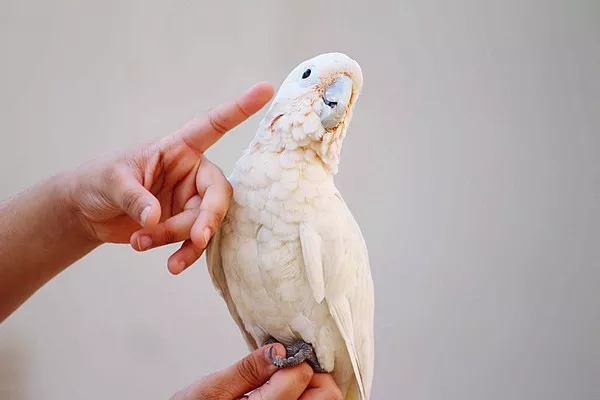Sun conures are one of the most vibrant and colorful members of the parrot family. Known for their playful personalities, affectionate nature, and striking appearance, they have become a popular choice among bird enthusiasts. But like all pets, they have specific needs and behaviors that require attention. One question many prospective and current owners ask is: Do sun conures get lonely?
The answer is a resounding yes—sun conures can and do get lonely. To understand why and how to prevent loneliness, we need to explore their natural behaviors, social needs, and how their living environments can influence their mental and emotional well-being.
The Social Nature of Sun Conures
Life in the Wild
In their native habitat, which spans tropical regions of South America, sun conures live in flocks that often number in the dozens. These flocks provide safety, companionship, and an environment where the birds can engage in their natural behaviors, such as foraging for food, preening each other, and vocalizing to maintain social bonds.
Living in a group is not just a preference for sun conures—it’s essential to their survival. The constant interaction with other birds in their flock helps them feel secure and connected. This deep-rooted social behavior is one of the reasons sun conures thrive on companionship.
Social Characteristics in Captivity
When kept as pets, sun conures naturally carry their wild instincts into their new environment. They crave interaction and companionship, not just from other birds but also from their human caregivers. Sun conures form strong bonds with their owners and may even view them as part of their “flock.”
Because of their sociable nature, isolation or a lack of interaction can lead to significant emotional and behavioral problems for these intelligent birds.
How Loneliness Affects Sun Conures
Loneliness is not just a temporary feeling for sun conures—it can lead to chronic stress, depression, and behavioral issues. Here are some of the most common signs that a sun conure is feeling lonely:
Excessive Screaming or Calling
Sun conures are naturally loud and expressive birds. However, if your conure is screaming more than usual, it may be trying to get your attention because it feels neglected or isolated.
Feather Plucking
Feather plucking is a distressing behavior where birds pull out their own feathers. This often occurs when a sun conure is stressed, anxious, or lonely. It’s a clear sign of emotional distress and should not be ignored.
Loss of Appetite or Lethargy
A lonely sun conure may lose interest in eating or become unusually quiet and inactive. This change in behavior can indicate depression.
Aggression or Clinginess
Loneliness can manifest as either aggressive outbursts or overly clingy behavior, depending on the bird’s personality. For example, your conure might become territorial or demand constant attention.
Repetitive or Destructive Behavior
Some sun conures develop repetitive habits, such as pacing back and forth on a perch, or destructive behaviors, such as chewing on cage bars, when they’re feeling lonely or bored.
Preventing Loneliness in Sun Conures
The good news is that with the right care, you can prevent loneliness in your sun conure and ensure it leads a happy, healthy life. Here’s how:
1. Provide Regular Social Interaction
Spending time with your sun conure daily is one of the most effective ways to prevent loneliness. Interact with them by:
- Talking to them in a calm, reassuring voice.
- Playing games, such as peek-a-boo or simple fetch with toys.
- Offering treats during training sessions.
- Letting them perch on your hand or shoulder during quiet activities like reading or watching TV.
The key is to make your conure feel like a valued member of your household.
2. Introduce a Companion Bird
If your schedule prevents you from spending enough time with your sun conure, consider getting a second bird as a companion. This option requires careful planning to ensure compatibility between the two birds. Introduce them gradually and monitor their interactions to confirm they get along.
It’s worth noting that not all sun conures will immediately bond with another bird. Some may require weeks or months to form a connection. Be patient during this process and consult an avian behaviorist if necessary.
3. Create a Stimulating Environment
Sun conures are intelligent and curious, so they need a stimulating environment to stay mentally engaged. You can achieve this by:
- Providing a variety of toys, such as puzzle feeders, chewable objects, and foraging toys.
- Rotating toys regularly to keep things interesting.
- Offering climbing structures, swings, and perches at different heights.
- Playing recordings of natural bird sounds or soft music to mimic the sounds of a flock.
4. Maintain a Consistent Routine
Birds thrive on routine, and sun conures are no exception. Try to establish a predictable daily schedule that includes feeding times, play sessions, and quiet periods. Consistency helps your conure feel secure and reduces anxiety.
5. Provide a Properly Sized Cage
A spacious cage is essential for a sun conure’s physical and mental health. The cage should be large enough to allow the bird to spread its wings fully and climb around comfortably. It’s also important to include perches, toys, and feeding stations in the cage setup.
The Role of Diet and Health in Combating Loneliness
While social interaction is critical, a well-balanced diet and good physical health also play an important role in a sun conure’s overall well-being. Poor health can exacerbate feelings of loneliness and make a bird more prone to stress.
Nutrition Tips
- Offer a varied diet that includes high-quality pellets, fresh fruits, vegetables, and occasional seeds or nuts.
- Avoid feeding your conure foods that are toxic to birds, such as chocolate, avocado, or caffeine.
Routine Health Care
- Schedule regular check-ups with an avian veterinarian to ensure your bird is healthy.
- Monitor your conure for any signs of illness, such as changes in droppings, weight loss, or unusual behavior.
Building a Strong Bond with Your Sun Conure
Building a strong bond with your sun conure can help reduce the risk of loneliness. This bond takes time, patience, and trust. Here are some tips for nurturing your relationship:
Start Slowly: If your conure is new to your home, give it time to adjust to its surroundings and your presence. Avoid forcing interaction in the beginning.
Use Positive Reinforcement: Reward your bird with treats, praise, or head scratches when it behaves well or interacts with you.
Respect Boundaries: Pay attention to your conure’s body language. If it seems agitated or scared, back off and give it space.
Be Consistent: Spend time with your bird every day, even if it’s just a few minutes of one-on-one interaction.
Conclusion
Yes, sun conures do get lonely, and addressing their social needs is an essential part of responsible pet ownership. By providing regular interaction, a stimulating environment, and proper care, you can help your sun conure feel secure and loved.
These beautiful birds are not just pets; they are companions with complex emotions and unique personalities. When you understand and meet their needs, your sun conure will reward you with affection, playfulness, and a lifetime of joy.
Ensuring your feathered friend is never lonely takes effort, but it’s well worth it to see your conure thrive as a happy and confident member of your family.
Related Topics:

























